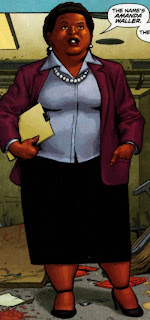ITV PASSES ON TWC TV:
 British TV giant ITV has passed on buying the TV arm of The Weinstein Company, which could have meant hundreds of millions of dollars for the Weinsteins which would have been a nice cushion for their feast/famine business model.
British TV giant ITV has passed on buying the TV arm of The Weinstein Company, which could have meant hundreds of millions of dollars for the Weinsteins which would have been a nice cushion for their feast/famine business model.
Now some are wondering why ITV is walking away from the deal.
I think I know why ITV backed out, but I'm wondering why it hasn't ended in a lawsuit, which is usually how deals with TWC usually end.
Then again, the day is young, legal papers could still be filed.
Anyway, back to why ITV pulled out. I think they looked at TWC, looked at their history, and looked at how they had to trade over 200 films from their library to avoid bankruptcy a few years ago and said: "Maybe this is not for us."
Remember, television is all about making shows and airing them when you promise to air them. It's all about regularity, predictability, and reliability.
 TWC's business model seems based almost entirely on Harvey Weinstein's whimsy, especially when it comes to things that should be simple, rational, business decisions. Whimsy can get expensive.
TWC's business model seems based almost entirely on Harvey Weinstein's whimsy, especially when it comes to things that should be simple, rational, business decisions. Whimsy can get expensive.
Then there's trust.
TWC's flagship TV project is Project Runway, a fashion themed reality show. It's run for 13 seasons, they license foreign versions all over the world, and it's a solid ratings earner for the Lifetime Channel.
Now it wasn't always on Lifetime, in fact, for the first five seasons it was on NBC-Universal's Bravo Channel. It was during negotiations for Season 6 that Harvey Weinstein literally buried NBC-Universal boss Jeff Zucker under a ton of aggrandizing horse-shit about how their deal was as good as done because they were the truest friends.
Meanwhile, Weinstein had already inked the deal to sell the show to Lifetime.
Ouch.
So now you can probably understand why ITV chose to avoid getting into bed with TWC.
TOMORROWLAND TANKS?
Disney's theme park ride turned sci-fi-fantasia film Tomorrowland is underwhelming at the box office, hitting number one during a shockingly sluggish Memorial Day weekend.
I had a feeling this would happen the moment I saw George Clooney at the centre of the ad campaign.
Hollywood's grim determination to make him a star even though he's dropping more bombs than Curtis LeMay is starting to look both sad and ridiculous.
Clooney's only truly successful film in the last decade was Gravity, and that was essentially Sandra Bullock's movie, he had a glorified cameo, and he didn't feature in any of the ads.
HERE WE GO AGAIN
It's becoming a trend when a celebrity dies that their family start hurling accusations and counter-accusations and everything goes straight to hell. Casey Kasem seems to be the most famous and drawn out case.
I fear it's going to spread, like a virus, and will happen every damn time someone famous dies.


















.jpg)


